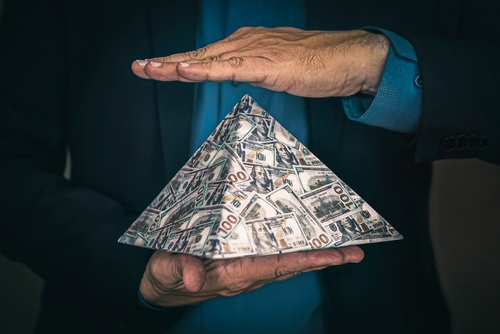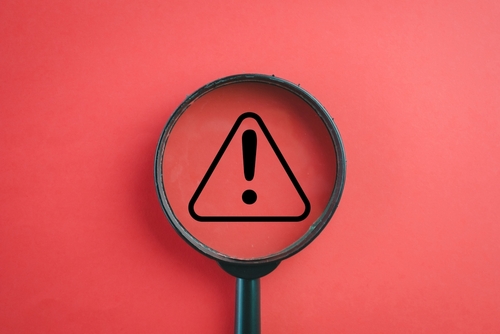Direct Selling in the Digital Age
The direct selling network is thriving and predicted to continue its growth at a compound annual growth rate (CAGR) of five percent between 2024 and 2032, to reach a value of USD 385.17 billion by 2032. Entrepreneurs have more opportunities than ever to be personally empowered to earn money selling a product that they endorse. However, the channel’s early days of door-to-door sales have evolved tremendously over the years as technology has advanced.
Over a decade ago, the Journal of Personal Selling and Sales Management began to acknowledge that the industry had been forever impacted by the progress of a digital age. In their article “An Assessment of the Use of Technology in the Direct Selling Industry,” Ferrell, Gonzalez-Padron and Ferrell stated, “The traditional notion of direct selling is of an industry that is face-to-face and people-oriented, with a focus on building strong personal relationships with consumers. While technology can improve productivity, it challenges the customary ‘high touch’ tradition in the industry.”
Today technology has eliminated much of the human-centric nature of direct selling. It has undoubtedly allowed entrepreneurs to reach more potential clients much faster and led to the development of interactive tools to benefit consumers, but that same technology allows for decreased accountability. Unfortunately, when accountability is lost, the direct selling channel becomes a magnet for nameless, faceless bad actors.

The Plague of Pyramid and Ponzi Schemes
It’s been over 100 years since Carlo Pietro Giovanni Guglielmo Tebaldo Ponzi was arrested for mail fraud. The scheme which bears his name now recognizes any fraudulent business wherein money taken in from new investors is used to pay debt to earlier investors. In a Ponzi scheme, returns are promised at a future date, and they are paid off by those who “buy in” later.
In much the same way, a pyramid scheme relies on the recruitment of new members and usually requires purchasing products or services to pay those higher in the pyramid. The difference between the scheme and a legitimate multi-level marketing business (MLM) at first glance may be hard to distinguish. In a pyramid scheme, the investment is usually fraudulent from the outset. The investment “opportunities” may change, but the bottom line is that eventually there isn’t enough cash from new investors to sustain the growth.
Direct selling is prone to corruption within a pyramid scheme because the number of MLMs, or businesses that operate with a multi-level component, make it easy to “hide” the fraudulent element of the business long enough for those at the top to take significant profit before it collapses.
When Digital Product Sales Go Wrong
The gold standard in determining the validity of direct selling businesses is if they offer a legitimate product or service a consumer wants to buy. When it comes to digital products, however, it’s harder to gauge legitimacy and sometimes even to determine what product (if any) is being sold.
Kevin Thompson, an attorney specializing in MLM and a founding partner of Thompson Burton, believes the most important legal case that helped determine specific guidelines for legitimacy was the BurnLounge case. This early digital product and its misguided structure established a precedent upon which companies can be compared to this day. In 2007 the Federal Trade Commission (FTC) got wind of concerns with the company BurnLounge. The company proposed to offer consumers the opportunity to set up an online store where they could sell music and related merchandise. What the FTC learned was that retailers were mostly earning “credits” that could be converted to cash for an extra monthly fee that could only be earned by recruiting new members and selling music store packages.
“The promise of easy money is but a wolf’s trap laid out for sheep seeking taller grass.”
― James Jean-Pierre
There was actually very little merchandise being sold—Thompson suggested as little as three percent of revenue was from product sales—and a “significant number” of investors were losing money. Eventually, proprietor Scott Eliot settled with the FTC for nearly $118,000 in 2008. And in 2012, the California Central District Court ruled that the remaining defendants listed in the BurnLounge complaint owed $16.2 million in redress.
Among other legal standards, the BurnLounge verdict established the importance of real product being sold. And when payments and commissions driven by recruitment are the primary revenue source as opposed to sales to ultimate users, it will undoubtedly flag those companies as pyramid schemes.
The Securities and Exchange Commission (SEC) warned that potential MLM marketing programs may be pyramid schemes when there is an “emphasis on recruiting” and specifically to be skeptical if more compensation is earned for recruiting others than for product sales. A red flag is when the recruiter builds hope solely focused on opportunity—they’re usually misrepresenting what’s possible.
Crypto and MLMs
Social media platforms and messaging apps are fertile breeding ground for fraudulent investment “opportunities” involving cryptocurrency or foreign currency trading (forex). They often begin with an unsolicited pitch or an invitation to join an unfamiliar trading website.
When it comes to cryptocurrency and its promise of passive income based on recruiting and investment in a digital “product” as part of an MLM, the offering was almost destined to draw in business owners with fraudulent motives. As the cryptocurrency and forex markets exploded in the last decade (at one point Forbes suggested there were almost 23,000 cryptocurrencies), the nature of the digital currency itself makes it a prime target for a Ponzi scheme.
Investing in a digital product with a short-term rate of remarkably high returns with representatives that may have little to no education in finance or banking soliciting new investors are all signs of “bad apples.” Thompson said in a recent post, “It’s time to state the obvious: Crypto + MLM = Legally Impossible.”

It’s a sentiment shared by many in the industry. As a general rule, cryptocurrency and other digital financial product companies are not legitimate network marketing opportunities. Thousands of cryptocurrencies have failed—whether because they were a scam from the beginning or because of poor management.
One of the biggest scams was OneCoin, which, according to the US Attorney’s Office for the Southern District of New York, generated over four billion Euros in sales revenue between fourth quarter 2014 and fourth quarter 2016 operating as an MLM through which members received commissions for recruiting others to purchase cryptocurrency packages.
In reality, there was no mining of coins. Founder Karl Greenwood, a citizen of Sweden and the United Kingdom, was finally arrested in July 2018; extradited to the US; and pled guilty to one count of conspiracy to commit wire fraud; one count of wire fraud; and one count of conspiracy to commit money laundering. His business partner Ruja Ignatova has been missing since 2017 and remains on the FBI’s Top Ten Most Wanted List.
Masking the Investment in Digital Products
When there is no tangible physical product being transferred from seller to consumer, it is much easier for the company to use its own structure to mask how investors can actually earn money. One of the latest scams was OmegaPro. Founded in 2019 by Dilawar Singh, the company did not offer any physical product, rather it offered online trading services.
For a $29 investment, members could purchase different levels of licenses. The commission structure got confusing from there, which is yet another hallmark of a pyramid scheme according to warnings from the SEC. Affiliates needed to earn different rank volumes to maintain their ranks with stronger and weaker legs with downline requirements. There were three levels of leadership pools. And 30 percent of earned commission automatically went to an e-wallet; the remaining 70 percent was added to the passive wallet. Confused yet?
The main problem was that there was never any indication OmegaPro held any license as a broker or was authorized by any authority. Spain, Peru, Chile and France all issued warnings about the organization. When OmegaPro collapsed in December 2022, it issued a statement that it had sold its investor database to BrokerGroup, which has questionable roots itself. It came as no surprise that OmegaPro was run from Dubai.
Why Dubai?
A huge number of digital and cryptocurrency companies are headquartered in Dubai. In 2021 they expected to have at least 1,000 cryptocurrencies in the country by 2022, but that may now be impacted somewhat by regulatory and licensing requirements implemented earlier in 2023. Why so many in one city in the United Arab Emirates (UAE)? One reason may be because they have no extradition treaty, but they can actually claim to have oversight.
According to the International Trade Administration, “The Department of Economic Development (DED) consented to the formation of the Direct Selling Association in UAE (DSA), an official member of the World Federation of Direct Selling Associations (WFDSA), in order to promote transparency and to regulate the sector.”
The DSA was established in 2009 representing 14 direct selling companies operating in the region. Although network marketing in Saudi Arabia is expressly prohibited, in Dubai it is almost encouraged even though technically, according to the Dubai-based Fotis International law firm, “…only 14 companies are legally certified to work as direct sellers in the UAE.”
Fotis International stated, “The DSA UAE’s mission is to promote the direct selling industry in the UAE and the Middle East and safeguard consumers’ rights by adhering to the peak level of business integrity” and that “legitimate direct selling companies play a vital role in the socio-economic development of the UAE and the Middle East.”
The DSA outlines specifics regarding registration requirements, trade licenses and consumer’s rights for direct sellers. However, these are expressly spelled out for UAE citizens with little mention of the responsibilities of the company to consumers outside of the region. It appears that if they don’t target UAE residents, companies can operate without fear of regulation. Behind MLM’s anonymous author says, “Within Dubai, so long as they don’t target UAE locals, scammers are free to scam anyone from anywhere.”
Global Legal Insights points out in their analysis of bribery and corruption charges that “as a civil law jurisdiction, UAE judicial judgments are not available publicly,” making it difficult to determine if any of these direct sellers are being prosecuted within Dubai for any reason. But chances are that any hint of corruption in foreign countries is likely evidence of concern for US investors, sellers and consumers. As Thompson posed, “When you see smoke overseas is there a fire domestically?”
Getting Caught
It is difficult to keep up with the lawsuits, name changes and faces affiliated with one company that shows up again with a new endeavor. Global Wealth Trade Corporation became Opulence Global. Melius rebranded to BE. Dubli, Inc. is now Ominto, Inc.—just to name a few.
The fact that they are changing names is not necessarily a cause for concern, but it does raise questions about the reasons behind the rebranding. Sometimes the name change is because they’re setting up a parent company to buy other companies. But in other instances, the companies could be trying to “juice” recruiting and hope the new name will reach new investors. Thompson said that usually the impetus to change names is because there is negativity associated with the previous brand but reminds investors the name change “helps zero with regulatory activity” if there is any.
Regulators are, however, catching up to those who are not doing right by the direct selling channel. iX Global claimed to be the “fastest-growing self-betterment platform” as a fintech company that taught investors how to earn passive money through cryptocurrencies as well as other AI trading self-managed accounts.
In July 2023 the SEC named 18 defendants including CEO Joe Martinez in suing the company for securities fraud. According to Behind MLM, prior to launching iX Global, Martinez was a promoter of Investview’s fraudulent Kuvera Global investment scheme. iX Global’s top promoters and earners are also former Kuvera Global promoters. In response to the lawsuit, ix Global reminded investors, “We do not offer any guarantees of ROI (return on investment).”
The concerns about MLMs and digital products extend beyond cryptocurrency, forex and other derivatives. Social networks, NFTs, discount shopping, legal services and all sorts of education platforms (such as the ones claiming to educate investors in crypto) are prime targets for pyramid and Ponzi schemes—and frequently linked to cryptocurrency companies.
Onyx Lifestyle reported to have in the first month of business in 2019 over 4,200 “members” (aka investors), and the company claimed earnings of over $10 million. The company offered “global banking through your personal account” in addition to membership tiers that provided a “premier membership card” that was “a key to luxury” along with exclusive access to events.
A class action lawsuit was filed in 2021. Travis Bott and Clif Braun were both affiliated with the organization and according to Behind MLM, “Travis Bott is a serial securities fraud offender. Behind MLM has attached him to multiple Ponzi schemes over the years. Travis Bott first appeared on Behind MLM’s radar in mid 2017. We tied Bott to Divvee’s illegal securities fraud offering, through Ryze AI. Bott reemerged in late 2017 with Westmyn, a shell company used to commit securities fraud through Investview’s Wealth Generators. Investview was subpoenaed and subsequently fined $150,000 by the CFTC in 2018. A year later Travis Bott went solo with Onyx Lifestyle. In mid 2021 what was left of Onyx Lifestyle was rolled into Digital Profit. Digital Profit imploded with a ‘bad trades’ exit-scam in August 2021. Investors lost hundreds of thousands of dollars.”
Behind MLM also recently reported on the bankruptcy filing of Lyoness in Europe. Stated reasons for the bankruptcy include the lingering effects of the pandemic, the ongoing energy crisis and inflation. But Beyond MLM remains skeptical of both the filing and Lyoness. As stated in their article, “Lyoness is a Ponzi scheme….Over the years, Lyoness has gone through many iterations, name changes and associated shell company registrations.”
Lyoness was declared to be a pyramid scheme and fined 3.2 million Euros in 2019 in Italy. The company ignored the ban and was fined an additional 3 million Euros in 2021. The company has been outlawed in Norway, Poland, Russia and Lichtenstein. It was revealed through the bankruptcy proceedings, the company is $110 million in debt in November 2023.
The adage “if it sounds too good to be true, it probably is” couldn’t be more applicable than when examining these schemes. “It’s amazing the BS consumers fall for,” Thompson shared.

The Threat to Legitimate Direct Sellers
Direct selling’s reputation suffers because of the actions of those who don’t play by the rules of the channel. Direct selling companies are becoming much more cognizant of how cryptocurrency schemes masquerading as MLMs threaten the identity and reputation of the direct selling channel.
Conventional wisdom calls for more self-regulation to protect sellers and consumers. The very real risk is that unethical, unsustainable cryptocurrency and forex schemes become synonymous with legitimate direct selling opportunities in the minds of consumers and entrepreneurs alike. Vigilance, oversight and transparency are all key and must be a priority for all direct selling companies and affiliated trade associations.
It’s also important that prospects exploring these opportunities exercise extreme due diligence. Fortunately, investors live in a world where they have more access to information than at any time in history. Every industry has bad actors, and every investor must do their homework and seek expert guidance to avoid fraudulent opportunities. But legitimate direct selling companies operate much differently than the bad actors discussed here.
The important differentiator for direct selling is the relationships upon which the industry is built. The channel’s uniqueness rests on the fact that there is a team of real people with real relationships driving the business.
And that collaboration is key. Maybe some of those lessons from those early door-to-door days are still applicable today. The distribution channel must be the priority, and the business is all about repeat sales and loyal customers. And if the industry continues to build on that foundation, direct selling’s future is limitless.
Top 11 Signs of a Bad Actor
Fraudulent investment schemes share some common traits that mark them as potential bad actors. They aren’t always easy to spot, and this list is in no way inclusive—but here are 11 big red flags that indicate the need for due diligence. It’s important to note how different these are from legitimate, sustainable and scalable direct selling opportunities offering tangible products and services.

- Lack of Actual Products or Services
Pyramid schemes usually lack a legitimate underlying business. The primary source of revenue is money collected from new investors, rather than a genuine business activity such as sales of products or services. - Promises of High Returns with Little to Low Risk
Fraudulent schemes rely on unrealistic guarantees, inflated claims or the appearance of profitability to maintain trust and avoid suspicion. - Lack of Transparency
Evasiveness about the specifics of the investment strategy or vague and inconsistent information about operational practices allow for deception. - Exorbitantly High Commissions
High commissions paid on significant investments historically attract the wrong type of business builders. Stable, lasting companies promote steady incremental growth. - Unregistered Investments
Operators often lack the necessary registrations or licenses. Legitimate investment opportunities must adhere to regulatory standards and oversight. - Difficulty Withdrawing Funds
Obstacles impeding access to funds could be due to a lack of actual profits or an attempt to prolong the collapse of the scheme. - Payouts Funded by New Investments
A classic indicator of an illegal scheme is when returns paid to early investors come from the contributions of new investors, creating a cycle of dependency. - Undue Pressure to Reinvest
Investors can feel pressured to reinvest rather than cash out. This helps perpetuate the scheme by keeping funds within the system. - Recruitment Driven
By relying on a recruitment-driven structure where participants are encouraged to constantly bring in new investors, bad actors can maintain an illusion of profitability. - Operational Secrecy
The inner workings of the investment “strategy” is a closely guarded secret, discouraging investors from asking too many questions and prohibiting them from conducting due diligence. - Too Good to Be True
Savvy investors should be skeptical of any opportunity that offers disproportionately profitable returns when compared to conventional investments.


